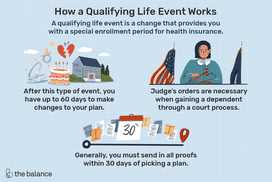Qualified Eligible Participant (QEP): What it Means and How it Works
A Qualified Eligible Participant (QEP) is an individual or entity that meets certain criteria set by the Commodity Futures Trading Commission (CFTC) to participate in certain types of investment opportunities. This designation is primarily used in the context of commodity pool operators (CPOs) and commodity trading advisors (CTAs).
To qualify as a QEP, an individual or entity must meet specific financial thresholds. These thresholds are designed to ensure that only sophisticated investors with a certain level of financial resources and knowledge are eligible to participate in certain investment opportunities.
One of the main benefits of being a QEP is the ability to invest in certain types of alternative investments that are not available to non-QEP investors. These investments often have higher minimum investment requirements and may involve more complex strategies and instruments.
In order to qualify as a QEP, an individual or entity must meet one of the following criteria:
- Have a minimum net worth of $2 million (excluding the value of their primary residence) or
- Have a minimum net worth of $1 million (excluding the value of their primary residence) and have substantial investment experience or
- Be a qualified purchaser as defined by the Investment Company Act of 1940 or
- Be an employee benefit plan with at least $5 million in total assets or
- Be a commodity pool owned by QEPs or
- Be an entity in which all of the owners are QEPs.
To become a QEP, an individual or entity must provide documentation and evidence to prove that they meet the necessary criteria. This may include financial statements, tax returns, and other relevant documents.
Once qualified as a QEP, an individual or entity can access a wider range of investment opportunities, including hedge funds, private equity funds, and other alternative investments. These investments often have higher potential returns but also come with higher risks.
It is important to note that being a QEP does not guarantee success or protect against losses. It is still important for QEPs to conduct thorough due diligence and carefully evaluate the risks and potential rewards of any investment opportunity.
To qualify as a QEP, an individual must meet one of the following criteria:
| 1. | Have a net worth of at least $2 million, excluding the value of their primary residence. |
| 2. | Have a portfolio of at least $5 million, including investments in hedge funds and commodity pools. |
| 3. | Be a qualified purchaser, which means they have at least $25 million in investments. |
| 4. | Be an investment company, insurance company, or registered commodity pool operator. |
By meeting these criteria, a QEP is deemed to have the financial resources and knowledge necessary to understand and evaluate the risks associated with alternative investments. This status also allows them to access investment opportunities that may not be available to non-QEP investors.
It is important to note that the QEP status is not a guarantee of investment success or protection against losses. It simply serves as a qualification for participation in certain types of investments. Investors should still conduct thorough due diligence and carefully consider the risks before investing.
Benefits of Being a Qualified Eligible Participant (QEP)

A Qualified Eligible Participant (QEP) is an individual or entity that meets certain requirements set by the Commodity Futures Trading Commission (CFTC) to participate in certain types of investments, such as commodity pools and hedge funds. Being a QEP comes with several benefits that make it an attractive option for investors.
1. Access to a wider range of investment opportunities: QEPs have access to investment opportunities that are not available to non-QEP investors. This includes investments in commodity pools, hedge funds, and other alternative investment vehicles. These investments often have the potential for higher returns but also come with higher risks.
3. Exemption from certain regulations: QEPs are exempt from certain regulations that apply to non-QEP investors. This includes regulations related to disclosure, reporting, and investor qualifications. This exemption allows QEPs to have more flexibility in their investment strategies and reduces the administrative burden associated with compliance.
6. Portfolio diversification: By investing in a wider range of investment opportunities, QEPs can diversify their portfolios and spread their risk. Diversification is an important risk management strategy that can help reduce the impact of any single investment’s performance on the overall portfolio.
Requirements to Qualify as a Qualified Eligible Participant (QEP)
In order to qualify as a Qualified Eligible Participant (QEP), an individual or entity must meet certain requirements set forth by the Commodity Futures Trading Commission (CFTC). These requirements are designed to ensure that QEPs have a certain level of financial sophistication and experience in trading commodity futures and options.
There are two main categories of QEPs: individuals and entities. The requirements for each category are slightly different.
For individuals to qualify as QEPs, they must meet one of the following criteria:
- They must have at least $2 million in assets under management, either individually or jointly with a spouse.
- They must have a net worth of at least $5 million, either individually or jointly with a spouse.
- They must be a “knowledgeable employee” of a commodity pool operator or commodity trading advisor.
- They must be an “eligible contract participant” as defined by the CFTC.
For entities to qualify as QEPs, they must meet one of the following criteria:
- They must have at least $5 million in total assets.
- They must be a commodity pool operated by a QEP.
- They must be a commodity trading advisor or an operator of a commodity pool that is exempt from registration.
- They must be an “eligible contract participant” as defined by the CFTC.
It is important to note that these requirements are subject to change and it is recommended to consult with a legal or financial professional to ensure compliance with the current regulations.
By meeting these requirements and becoming a QEP, individuals and entities gain access to certain benefits and opportunities in the commodity futures and options markets. These benefits include the ability to invest in certain types of funds and strategies that are only available to QEPs, as well as potential tax advantages.
How to Become a Qualified Eligible Participant (QEP)
Becoming a Qualified Eligible Participant (QEP) is a significant achievement for individuals or entities looking to participate in advanced investment strategies and instruments. To qualify as a QEP, certain requirements must be met, and the process involves specific steps.
Before embarking on the journey to become a QEP, it is crucial to understand the requirements set by the Commodity Futures Trading Commission (CFTC). These requirements are designed to ensure that only sophisticated and financially stable individuals or entities can participate in certain investment opportunities.
Some of the key requirements to qualify as a QEP include:
- Being an individual or entity with a substantial amount of assets under management (AUM)
- Having a net worth of at least $2 million
- Being a qualified purchaser (as defined by the Investment Company Act of 1940)
- Being a knowledgeable employee of a commodity pool operator or commodity trading advisor
The Process of Becoming a QEP
Once the requirements are understood, the process of becoming a QEP can be initiated. Here are the steps involved:
- Evaluate Eligibility: Assess whether you meet the necessary requirements to qualify as a QEP. This may involve consulting with legal and financial professionals to ensure compliance.
- Documentation: Gather all the required documentation to support your eligibility as a QEP. This may include financial statements, tax returns, and other relevant records.
- Verification: Submit the necessary documentation to the appropriate regulatory bodies or institutions for verification. This step may involve working with legal counsel or compliance professionals to ensure accuracy.
- Approval: Once the verification process is complete, you will receive confirmation of your status as a QEP. This approval will enable you to participate in advanced investment strategies and instruments.
The Benefits of Being a QEP
Being a QEP comes with several benefits, including:
- Access to sophisticated investment strategies and instruments that are typically unavailable to non-QEP investors
- Opportunities to diversify investment portfolios and potentially enhance returns
- Ability to invest in certain commodity pools and hedge funds
- Exemption from certain regulatory requirements applicable to non-QEP investors
Overall, becoming a QEP opens doors to advanced investment opportunities and provides a higher level of flexibility and freedom in the financial markets.
Advanced Strategies and Instruments for Qualified Eligible Participants (QEPs)

As a Qualified Eligible Participant (QEP), you have access to advanced strategies and instruments that can help you enhance your investment portfolio. These strategies and instruments are designed to provide sophisticated investors like you with opportunities to diversify your holdings and potentially increase your returns.
Diversification Strategies
One of the key benefits of being a QEP is the ability to employ advanced diversification strategies. These strategies allow you to spread your investments across different asset classes, industries, and geographic regions. By diversifying your portfolio, you can potentially reduce risk and increase the likelihood of achieving consistent returns.
Some popular diversification strategies for QEPs include:
- Asset allocation: Allocating your investments across different asset classes, such as stocks, bonds, and commodities, to achieve a balanced portfolio.
- International diversification: Investing in assets from different countries to take advantage of global market opportunities and reduce country-specific risks.
- Alternative investments: Including alternative asset classes, such as private equity, hedge funds, and real estate, in your portfolio to further diversify your holdings.
Advanced Instruments

QEPs also have access to advanced financial instruments that can be used to implement sophisticated investment strategies. These instruments are typically more complex and may require a higher level of expertise to understand and utilize effectively.
Some examples of advanced instruments available to QEPs include:
| Instrument | Description |
|---|---|
| Derivatives | Financial contracts whose value is derived from an underlying asset, such as options, futures, and swaps. |
| Structured products | Complex investments that combine multiple financial instruments to create a customized risk-return profile. |
| Managed futures | Investment strategies that involve trading futures contracts on commodities, currencies, and other assets. |
Before incorporating advanced strategies and instruments into your investment portfolio, it’s crucial to conduct thorough research, seek professional advice, and carefully assess the potential risks and rewards involved. As a QEP, you have the privilege of accessing these advanced tools, but it’s essential to approach them with caution and diligence.

Emily Bibb simplifies finance through bestselling books and articles, bridging complex concepts for everyday understanding. Engaging audiences via social media, she shares insights for financial success. Active in seminars and philanthropy, Bibb aims to create a more financially informed society, driven by her passion for empowering others.
